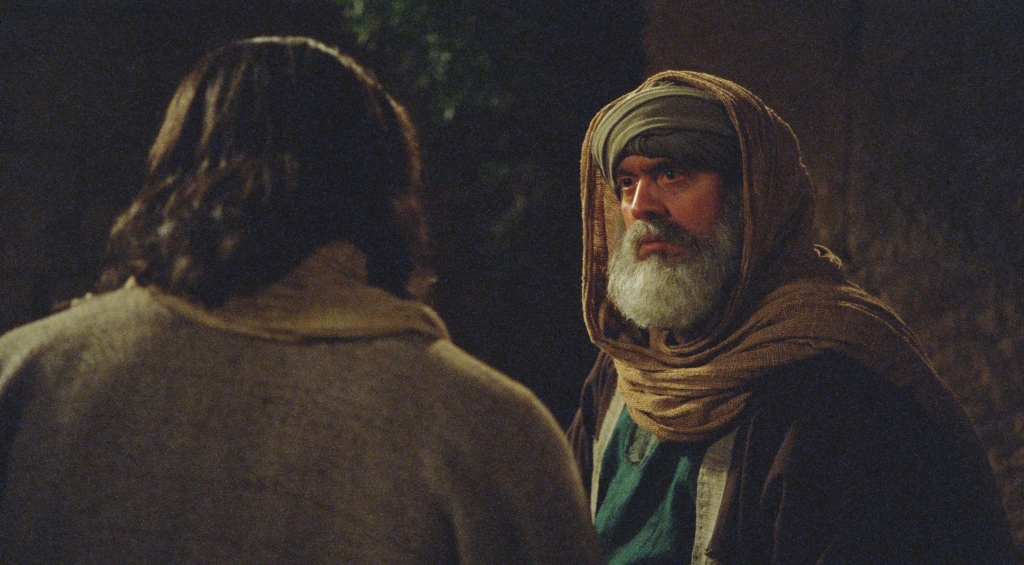
Eventually you will reach a point when you stop lying about your age and start bragging about it.
YEP!
More than half of Americans (56%) say they seldom or never attend religious services, according to new data from Gallup. Less than a third (30%) say they attend on a weekly or almost weekly basis.
Gallup found that almost all of the so-called Nones (95%) say they seldom or never attend services. More than half of Jews, Buddhists, Hindus and Orthodox Christians say they rarely attend as well.
Among religious Americans, Latter-Day Saints (67%) are most likely to say they attend weekly or almost weekly, followed by Protestants (44%), Muslims (38%) and Catholics (33%).
Critical Thinker
Good education forms a person into a critical thinker. That doesn’t mean a chronic skeptic! A critical thinker is someone who knows how to examine an idea by its history, context and coherence—coherence with other, more grounded ideas and inner coherence as logical consistency. A critical thinker learns to step back from ideas put before him or her and ask questions, even the right questions. A critical thinker is slow to embrace any idea until it is examined. And examining an idea requires a certain “distance” from it.
Roger Olson
The Small Gesture
Social media has turned many people into thirsty faux celebrities needing a grand gesture to publicize their identities. Engagements need to be choreographed, filmed, and put on YouTube. We’re not really cleaning debris from a beach for the sake of the environment but for a photo opportunity for Instagram. Yet, there are thousands of people who quietly, without acknowledgment, spend a day off, or even an hour off, doing something necessary for others. The small, intimate gesture is as valuable to the community as the big, grand gesture, for both are about improving humanity. As poet John Donne said, we are all “a piece of the continent, a part of the main.” Any act that lifts one of us, lifts us all.
Kareem Abdul Jabbar
Everyday mystics
Mystics are people who have a personal religious experience or an encounter with God. This description has freed me and many others from thinking that God appears to people only after years of prayer and living an ascetic, isolated life. Thurman believed anyone can be a mystic if they are open to the experience. He opened a door to a world where mystics move freely among us and live ordinary lives. Mystics are the ones who can hear the water flowing beneath the street. They know how to quiet the surface noise enough to hear the meaning of all things coursing below daily life.
Everyday mystics are people who commune with the presence of God, receive guidance through prophetic visions, voices, and dreams, and commit themselves to living for God rather than solely for themselves. Their vision for life is larger and more expansive, knowing that they are alive for a reason, a purpose that will benefit human spirits they may never meet…. Thurman lived out an identity grounded in mysticism, as he regularly felt oneness with God and on occasion experienced visions. He also believed that mystical moments should stir people toward love, community, and social action.
Lerita Coleman Brown on Howard Thurman
WWJD
What would Jesus do? My answer to that question, day by day, presupposes a loving trust in Jesus, the urgent and creative experience of God’s love shed abroad in my heart, a desire to abide in the One who abides in me, and a deepening of understanding, compassion and commitment in the face of all those other people who move in and out of my life.
Jim Gordon
Reason for Evangelism
“I share my faith in Christ with others not because I believe God will eternally torment them if they don’t accept Christ, but because I believe that in Jesus God came to us, to show us the way, the truth, and the life. I believe from him we have the clearest picture of who God is, and who God calls us to be. I tell others about Christ because my faith in him has changed my life for the better, because in him I find God’s love. I am passionate about sharing the good news of Jesus Christ with others because in it we find the purpose for which we were made, God’s answer to the deepest longings of our hearts, the road map for how we are meant to live, hope in the face of despair, and God’s love, mercy, and grace incarnated in him.”
Adam Hamilton
You might be a Christian Nationalist if you think:
- The federal government should advocate Christian values
- The federal government should allow prayer in public schools
- The federal government should allow the display of religious symbols in public spaces
- The federal government should declare the United States a Christian nation
- The federal government should enforce strict separation of church and state
- The success of the United States is part of God’s plan.
Forgiveness
a definition of forgiveness. Forgiveness occurs when:
A. an act violating a moral norm breaks trust, disturbs or destroys a relationship, and produces moral outrage (resentment, anger, hatred, vindictiveness, righteous indignation),
B. is addressed at the level of morality, damage, and responsibility,
C. but, with full awareness of the gravity of the moral offense, an increased understanding of the personhood of the wrongdoer, and contrary to a retributive sense of justice, and on the basis of one’s own personal beliefs,
D. a victim chooses to release (suddenly or progressively) the moral outrage in various ways (emotionally, cognitively, behaviorally), depending on the victim’s conditions (repentance, repair, restitution, retribution) and goals (psychological health, social justice, reconciliation).
Scot McKnight,
https://scotmcknight.substack.com/p/forgiveness-and-the-moral-order
Dealing with people
…in dealing with facts you can be sure before you commit yourself, but in dealing with persons you must commit yourself before you can be sure.
In daily life we trust people for three reasons: because they claim our confidence, because their claims are supported by the testimony of others, and because we can test them for ourselves by our own experience.
G.B. Caird
…studies have consistently shown that the more time people spend on Facebook the worse their mental health becomes; Facebooking is also correlated with increased sedentariness, a diminishment of meaningful face-to-face relationships, and a decline in real world social activities.” She closes the door on the essay with this damning word about Facebook:
…neither a record-setting five-billion-dollar penalty for privacy violations nor the latest antitrust efforts have managed to check one of the world’s most dangerous monopolies. Billions of people remain, instead, in the tight fisted, mechanical grip of its soul-saving mission.
Jill Lepore’s The Deadline
The Mission
Once the mission takes over all that matters is the mission. Ethics, morality, doing the right things – they fall into the ditch of claims we make that are important but only when we need them.
Scot McKnight on mission statements:
First, they need to be organic to the community, not a top-down imposition followed up by a passionate claim that God’s at work because this is our mission, and it’s God’s. Let the people speak. Let their voices rise to the surface. Listen to them.
Second, claiming something to be the mission, and plastering it on the church’s publications, does not make it the mission. The mission is God’s, it is centered in Jesus, and most mission statements don’t say enough about either. Or they are too simplistic to guide sufficiently.
Third, to discern the mission of a church community requires excavation of what the people in the church are actually doing. Not what they want to do. Not what they’d like to do. Not what they know the Bible says they are to do. But what they actually do. We might be surprised.
Fourth, I’m no fan of building vision statements and branding on the basis of the mission statement. It gets kitchy. Too clever. It’s not owned by the people. It looks cool because the cool kids are all building mission statements.
Fifth, having said that, I believe a church’s decision, over months and months, to examine the Bible and to articulate the Bible’s complexities about mission, can be a redemptive process. As long as it keeps the problems in view. I have heard over the years a number of leaders say that the process of working on a mission statement was helpful for the church to find its way. That’s all to the good.

View from the Front Porch
Spring’s appearance has been reluctant at best. The front porch is ready, cushions out and ready for conversations. On one recent warm day, I had the first conversation of this year. One of the best parts of front porch conversations is you never know who might show up or what the conversations might be about. If the first conversation is any indication, this will be an interesting year. The subject was circumcision. No worry it was an appropriate and healthy conversation, but I would never anticipated that beginning. Excited for what is come.


